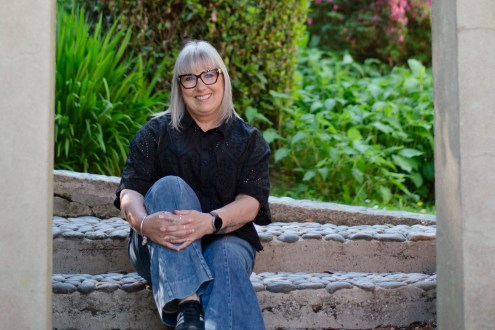Forgiveness is a strength
Formerly begrudging Harriet Minter is liberated to discover that forgiveness is a strength and not a weakness – and paves a path to self-awareness, empowerment and positivity

The older I get, the more I realise that – of those big three-word phrases – ‘I forgive you’ is the most difficult to really mean. ‘I love you’; ‘I’ll stop now’; ‘I believe you’; ‘We are over’; ‘Without the chips’… all painful to say but somehow easier to do than forgiveness. (Except maybe the chips.) Recently, however, I’ve learned that if we can properly do forgiveness, wholeheartedly and without expecting anything in return, it’s the most liberating and empowering of acts.
In primary school, after a spat with my friend over the words of the My Little Pony song, I was taught the importance of apologising to maintain relationships – but at no point did anybody teach me how to act on the other side of that apology. As a nation, I think the British are pretty bad at forgiveness. Our natural reserve means we’re only too keen to sweep the issue under the carpet and move on – true forgiveness requires a level of emotional honesty we’d all much rather skirt around.
This is what I now know about forgiveness: it cannot exist without boundaries. We tend to think of it as an absolute act – you either forgive everything or nothing. In fact, it works best as a tool to identify which emotional boundary was breached by the person who wronged us, and why it is important to us. Forgiveness is a lesson for you, not anyone else, so don’t wait around for an apology (it may never come), regain power by making the apology irrelevant to your forgiveness. To truly forgive someone, you have to acknowledge that humans are all perfectly imperfect. Some of our mistakes are bigger than others, but none of us is immune from making them.
When we don’t forgive, we tell ourselves one of two things: that the only acceptable human quality is perfection; or that every error is proof of our innate worthlessness. When we forgive others, we’re really giving ourselves space to acknowledge our flaws and accept them. Forgiveness is an act of strength, not weakness.
When someone hurts us, it’s easy to stay angry with them; it means we don’t have to do the hard work of forgiving. When you feel fury rising, try saying this mantra: ‘I forgive you and release us both from emotional pain.’ Remember why you decided to forgive the person in the first place: what empowering emotions can you substitute for resentment? This way, we regain control over the situation and our emotions. We let go of the power the other person has over us and we can start again, with or without them.
For weekly wisdom from Harriet, sign up for her newsletter at tinyletter.com/ harrietminter. Follow her on Twitter and Instagram @harrietminter
Photograph: Mark Harrison for Psychologies









